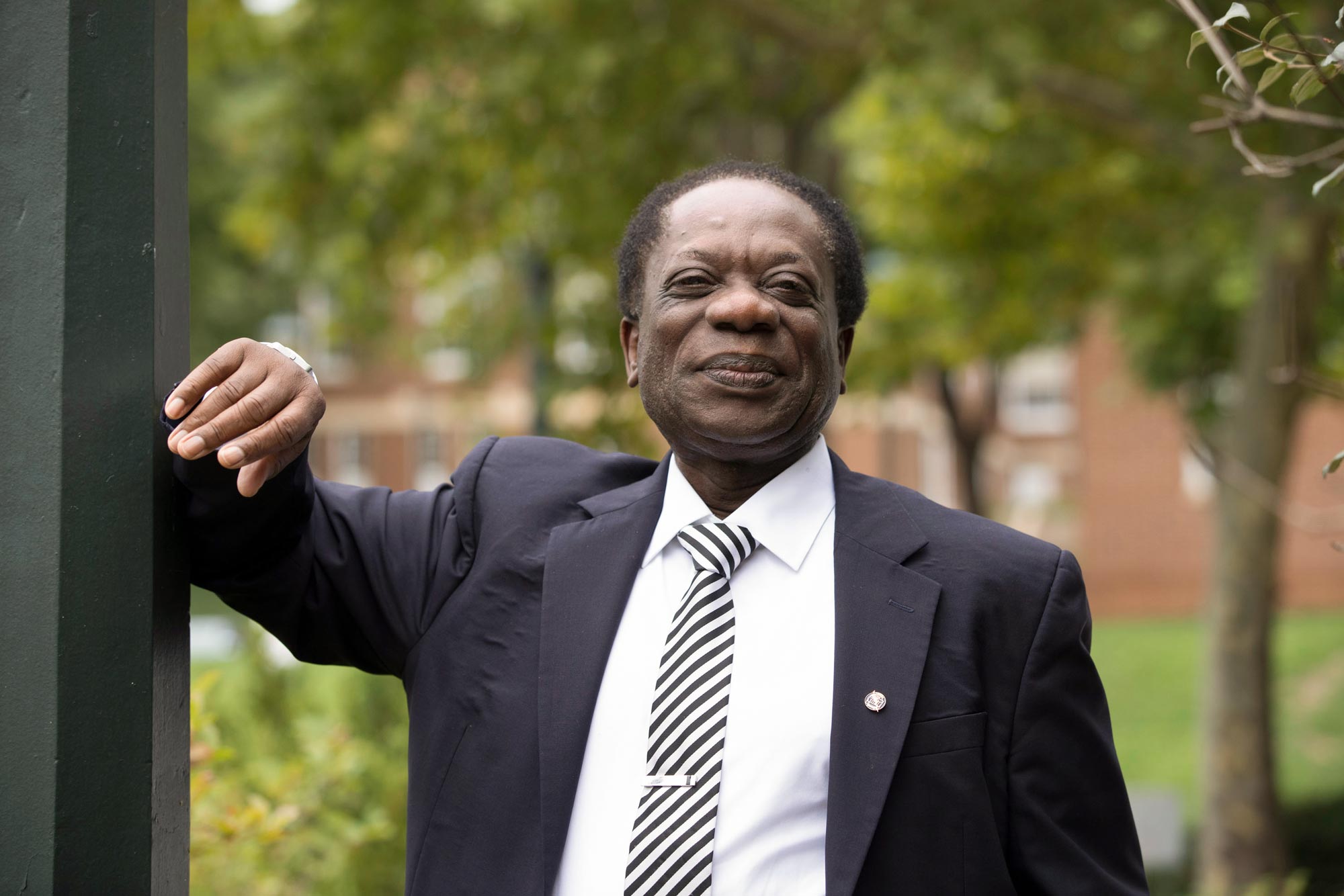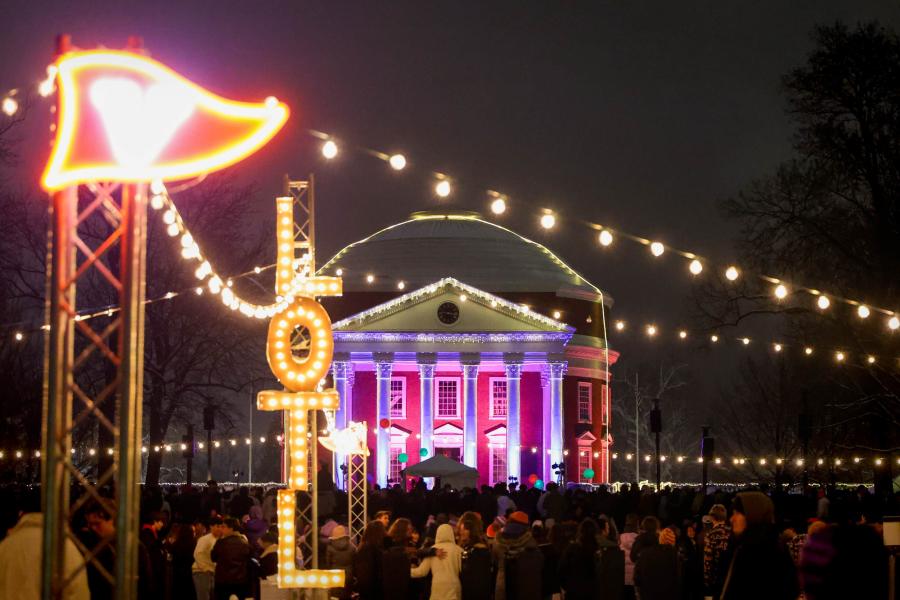Maurice Apprey joined the University of Virginia School of Medicine faculty in 1980 as a newly minted child and adolescent psychoanalyst who had studied with Anna Freud (yes, the daughter of Sigmund).
“Back in 1982, Dr. Lawrence Burwell, a cardiologist, was the only African American member of the faculty,” Apprey said, “and only a handful of African American students were in the entire School of Medicine.”
A year later, Apprey visited then-UVA Provost Ed Floyd, telling him, “We have got to change this image.” Not long after that, Apprey was named assistant dean of student affairs in the School of Medicine. He created a medical recruitment and retention program to attract and serve minority students.
As a result, minority representation in entering medical school classes rose by 17 percent. And for 13 years under his watch, the Medical School’s retention rate for minority and disadvantaged students was 100 percent.
Forty-plus years later, Apprey will officially retire from the University on June 30, having made a huge impact in changing the University’s image, not only in the Medical School, but also on Grounds as dean of African American Affairs, a post he’s held since 2006.
Time flew by so fast, Apprey said. He hardly noticed that he had been at the University for four decades. Looking back and asking himself, “What makes a person stay in one place for this long?” he said the answer goes back to that first conversation with the provost and wanting to improve the experience and success of underrepresented students.
As sure as the sun rises each day, I would not be where I am today without the mentorship, initiative and leadership of Dean Apprey.
– Dr. Michael Nelson
In a recent letter of gratitude to Robyn Hadley, vice president and chief student affairs officer, he credited those with whom he had worked: “I wish to extend my special thanks to colleagues, mentors, staff, students and all others who joined me in the yeoman’s task of advancing the University’s efforts in minority education from the inchoate experience it once was.”
Countless students have benefited from Apprey’s support and guidance over the years. He has taught undergraduate and medical students, residents in psychiatry and psychology, and hospital chaplains, plus students in Istanbul, Turkey, where he helped establish a psychoanalysis training institute. Apprey retired from teaching as professor of psychiatry last year.
Dr. Michael Nelson, a professor of medicine at the University of Virginia, sings the praises of his former teacher: “As sure as the sun rises each day, I would not be where I am today without the mentorship, initiative and leadership of Dean Apprey.”
Nelson, the first African American M.D./Ph.D. graduate from the School of Medicine, now serves as chief of the Division of Asthma, Allergy and Immunology at UVA Health and the School of Medicine. As a former UVA student who completed the Medical Academic Advancement Program developed by Apprey, Nelson said, “His personalized attention to all he meets is a legacy that has helped so many.” Nelson’s son, Max, who is graduating this spring from UVA, also has benefited from Apprey’s mentorship.
Sydney Williams, who graduated in 2020 with a B.S. in biology and a minor in philosophy, started a mentoring partnership with Apprey her first year on Grounds. She sought guidance on the best preparation for medical school, her next goal. They met once or twice a semester, discussing everything from selecting courses to getting exposure to medical fields. She will attend Columbia University’s Vagelos College of Physicians and Surgeons this fall.
Apprey’s “level of support validated my passion for medicine and enabled me to truly envision myself succeeding,” said Williams, who has been working at Project Horseshoe Farm, a community health non-profit organization, in Greensboro, Alabama.
Some aspects that have helped him in administration and teaching include becoming interdisciplinary and assuming the best of human nature, Apprey said. He advises others “to study broadly and deeply.”
When encountering obstacles, he added, creativity in finding alternative ways to work toward goals can be helpful.
Apprey, who hails from Ghana, received his B.S. in psychology, philosophy, and religion in 1974 from the College of Emporia in Kansas. He then became one of a handful of students who studied child psychoanalysis with Anna Freud at the Hampstead Clinic in London, now known as the Anna Freud Centre. He then received his adult training in psychoanalysis at the New York Freudian Society.
Apprey later went on to earn two doctoral degrees: a Ph.D. in human science research from the Saybrook Institute in San Francisco, and later, a doctorate in management (now renamed Doctor of Business Administration) from the Weatherhead School of Management at Case Western Reserve University. This gave him the opportunity to focus on studying leadership, conflict management and non-profit management research.










